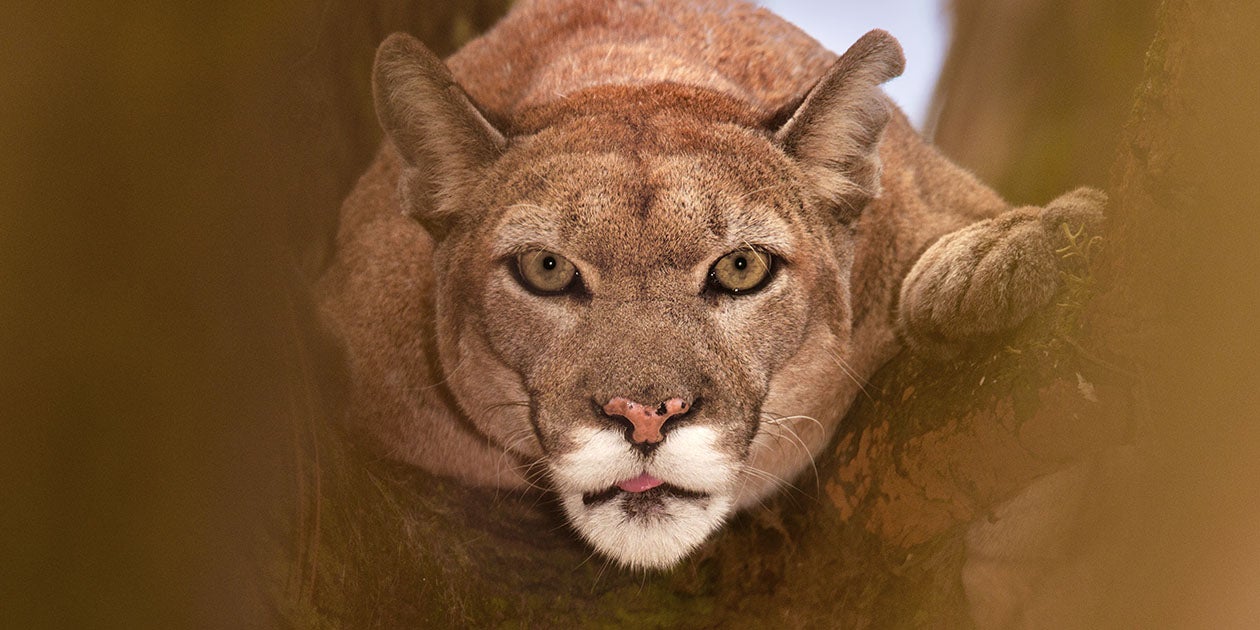5 Things We Can Do Now to Save the Florida Panther
Three panthers, including a kitten, were killed on Florida's roads just in the last week of September.
Here’s something I don’t want to report and you probably don’t want to read: So far this year, 24 endangered Florida panthers have died — 18 of them on roadways — an average of more than one a week. Remember that only an estimated 120 to 230 adult Florida panthers exist on Earth, all of them in southwest Florida. Just in the last week of September, three endangered panthers were killed on roadways in Lee and Collier counties — a kitten just 3 to 4 months old, a three-year-old male and a female that was 10 to 12 years old.
It’s hard to process this ongoing tragedy along with all the other things in the world. But we can’t let our despair at seeing so many panthers killed by vehicles obscure the fact that there are concrete actions we can insist our government leaders take to change the future for panthers.
And we have a special opportunity right now.
Floridian Shannon Estenoz was tapped by President Joe Biden to be assistant secretary for fish and wildlife and parks, in charge of the National Park Service and the U.S. Fish and Wildlife Service. Estenoz (formerly with the Everglades Foundation) is among top U.S. officials in charge of protecting endangered species. How significant it would be to witness a Floridian in the federal government work to save the panther, our official state animal.
Here are a few key actions we should insist that local and federal officials like Estenoz take to stop these spiraling panther deaths:
- Strengthen federal protections for Florida panthers under the Endangered Species Act to make sure they aren’t harmed by the new roads and traffic that will come with massive housing and commercial developments now planned in panther habitat.
- Revisit the ill-conceived decision to open the 25,560-acre Florida Panther National Wildlife Refuge to more people. Allowing turkey hunting, new hiking and biking trails, boardwalks and more infrastructure would only put Florida panthers in further peril.
- Deny permits that threaten panthers, including wetlands destruction and oil drilling permits that are now being sought in the Big Cypress National Preserve near Everglades National Park, one of the last wild places panthers call home.
- Stop the extremely questionable, recently exposed arrangement where landowners in panther territory have been paying staff costs for public employees at the very U.S. Fish and Wildlife Service office that’s charged with reviewing their development plans. This needs to be investigated by the U.S. Fish and Wildlife Service Inspector General.
- Return federal wetlands permitting authority to the federal government rather than allowing Florida to give developers a free pass to harm endangered species, including Florida panthers.
Our state animal has never been in greater danger, and the constant toll of panther deaths on highways is heartbreaking evidence that we are not doing enough. It’s painfully clear that now is the time to double down on protections for Florida panthers and ensure these magnificent animals survive and thrive.
It was devastating to see the U.S. Fish and Wildlife Service recently declare 22 birds, fish and other wildlife on the endangered species list as extinct. Isn’t it our clear duty to future generations to make sure the Florida panther doesn’t meet the same fate?
This article originally appeared in the Tampa Bay Times.
The Florida regional office wields the power of the law to protect our waterways and biodiversity, promote a just and reliable transition to clean energy, and defend communities disproportionately burdened by pollution.
